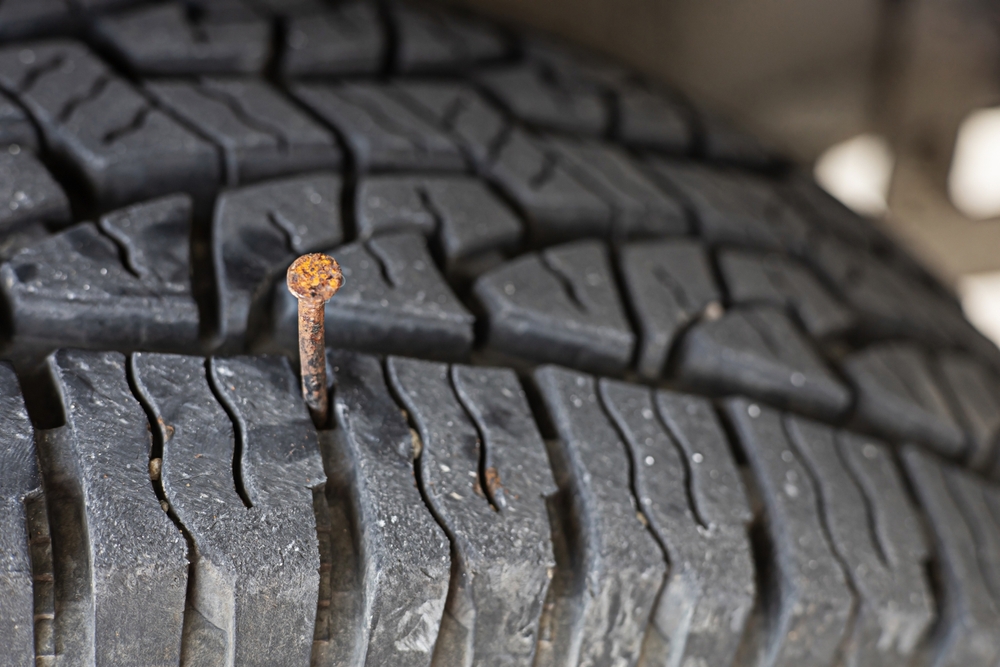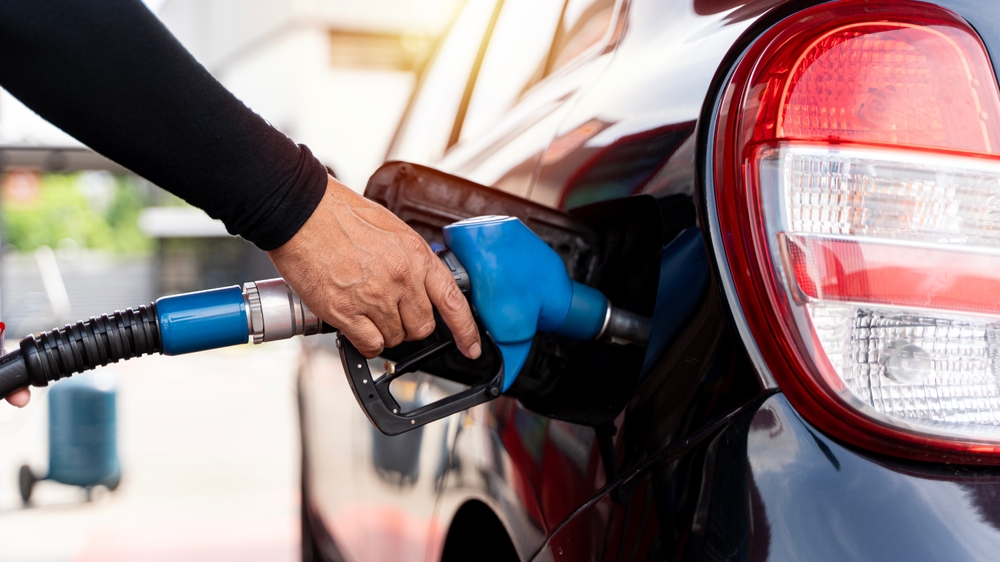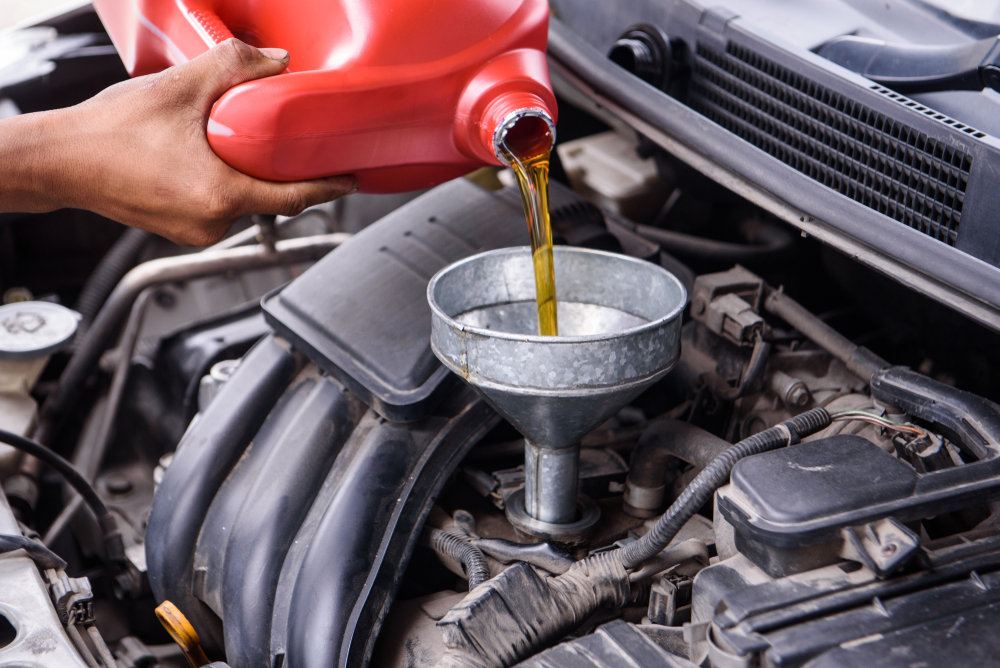Why Is My Check Engine Light Flashing?
Published on
September 15, 2025
.png)
You’re cruising along, everything feels fine, and suddenly the check engine light on your dash starts blinking. It’s one of those heart-sinking moments because a light that flashes is a lot harder to ignore than one that just stays on.
It’s stressful, and for good reason. A flashing check engine light usually means your engine isn’t firing the way it should, and if you keep driving, you could do serious damage. Nobody wants to be stuck on the side of the road, or worse, facing a costly repair that could’ve been avoided.
The good news is that that blinking light is your car’s way of waving the red flag early. At GreatWater 360 Auto Care, we’ve seen this exact scenario countless times. And our teammates can show you what signs to watch for, how to find the cause, and how to stop small issues from becoming big ones.
What a Flashing Check Engine Light Actually Means
Let’s start with the basics. Your vehicle's check engine light is part of the onboard diagnostics system. When it’s solid, it means the system has found something that needs attention soon, but not necessarily right this second.
But when it’s flashing? That’s the car's version of screaming.
A flashing check engine light almost always means there’s a misfire bad enough to cause damage to your catalytic converter, which can be an expensive fix. This isn’t a “wait and see” situation. Driving with a flashing light can quickly turn a small issue into a major repair.
Misfiring Engine: The Most Common Culprit
When your engine misfires, the combustion process inside the cylinder doesn’t go off like it should. That can happen every few seconds, every few minutes, or under certain conditions like acceleration or climbing a hill. A misfire is the number-one reason a check engine light will flash.
This can also cause:
- Rough idling or shaking
- Loss of power
- Poor acceleration
- More fuel being dumped into the system than your car can burn
Unburned fuel can overheat and ruin your catalytic converter. Sometimes you’ll even hear a popping or sputtering sound from the engine or exhaust.
Issues With the Ignition System
Your ignition system, including your spark plugs, coils, and wires, is what lights the fuel mixture in the cylinder. If any of these parts fail, they can cause a cylinder to misfire, leading to (you guessed it) a flashing check engine light.
Common ignition system issues include:
- Worn or fouled spark plugs
- Failed ignition coils
- Damaged spark plug wires
If the sputtering gets worse in the rain or after a cold start, ignition parts may be to blame. Under the hood, worn plugs may look blackened, cracked, or oily. These are parts that wear out over time, especially in vehicles over 6-8 years old. Replacing a bad coil or plug isn’t usually a huge deal, but ignoring it can lead to bigger problems fast.
Fuel System Problems
Engines need the right amount of fuel at the right time. A clogged fuel injector, a weak pump, or even a dirty filter can starve the engine, leading to misfires. Too much fuel can be just as bad, flooding the cylinder and fouling the spark plug.
Possible fuel system causes of a flashing check engine light:
- Clogged fuel injectors
- Bad fuel pump
- Fuel pressure regulator issues
- Dirty or low-quality gas
If your car starts hesitating, sputtering, or struggling to accelerate, especially when the light’s flashing, fuel delivery could be the problem. This is something we can diagnose quickly with the right tools.
Failing Sensors or Emissions Components
Your car’s computer relies on sensors to keep everything balanced. A bad oxygen sensor, mass airflow sensor, or crankshaft sensor can throw fuel and spark timing way off. In some cases, a failing catalytic converter or EGR valve can also trip the flashing light.
Sometimes the issue starts with a failing sensor or emissions part, like:
- Oxygen (O2) sensors
- Mass air flow (MAF) sensor
- Catalytic converter
- EGR valve
These parts play a big role in managing your engine’s fuel-air mix and keeping emissions low. If something goes out of whack, the computer may adjust in ways that cause misfiring or other driveability issues. And then, cue the flashing light.
That said, sensors often trigger a solid check engine light, not a flashing one. If the light is blinking, and one of these parts is involved, it’s usually because they’re contributing to a larger problem, like misfires or fuel dumping.
When to Stop Driving and Call a Pro
If your check engine light is flashing, you should assume it’s not safe to keep driving. But here’s a quick breakdown of what to do depending on your symptoms:
If the car is still running fairly smoothly:
- Pull over safely
- Turn the car off and restart it
- If the light keeps flashing or the engine feels rough, stop what you’re doing and get it checked right away
- Drive only if you must to get to a shop, but keep it short.
If the car is shaking, stalling, or losing power:
- Stop driving immediately
- Call for a tow
Driving in this state can cause serious engine damage or leave you stranded
When in doubt, play it safe. We’ve seen too many folks try to “limp it along” and end up with a fried catalytic converter, or worse.
Let GreatWater 360 Auto Care Check It Out
A flashing check engine light isn’t something to guess at. The sooner you get it diagnosed, the better chance you have at avoiding major repairs.
At GreatWater 360 Auto Care, we’ve got the diagnostic tools and hands-on experience to help you figure out exactly what’s going on and how to fix it the right way. Plus, our teammates will explain what’s happening in plain English, not tech-speak.
If your check engine light is flashing, don’t wait. Request an appointment online or give us a call.


